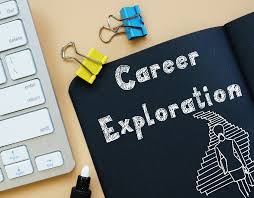When Should You Begin?
Many parents struggle with questions like: “When is the right time to start planning for my child’s education future?” or “How can I ensure my child explores different paths?” or even “Have I started too late?”
While these concerns are valid, equally important is understanding what actions to take once you do begin the process, and this is what this post is about .
( for the “when”, see Rule of the restaurant : https://youtu.be/Xq78ow8uo-0 )
A Timeline Approach
As your child progresses from grades 8/9 through 12, your objectives and related activities should change too.
Typically for grade 8 / 9, the key objective should be Career Exploration & Personal Discovery

- Self-Awareness and Career Exploration: Help your child understand their strengths, interests, and how these connect to potential career paths
- Decision-Making Timeline Management: Create realistic timelines that prevent last-minute stress
- Stress Management: Develop healthy approaches to handle the pressure of important decisions
- Reality Checks: Expose your child to the day-to-day realities of various professions beyond the glamorized versions
- Leveraging Teenage Transitions: Early adolescence offers unique opportunities to introduce diverse experiences that spark new interests
- Preparing for Big Questions: Help them thoughtfully consider “What interests you?” and “What do you want to do with your life?”
Remember that each family’s circumstances are unique—take time to consider the broader picture before diving into specific plans.
Essential Skills Development
During this period, focus on developing these foundational skills that will serve your child throughout their education and career:
- Writing: Clear written communication across various formats and purposes
- Research: Finding, evaluating, and synthesizing information effectively
- Communication: Expressing ideas confidently in different contexts
- Finding Their Voice: Developing authentic self-expression and advocacy
- Resilience: Building the capacity to learn from setbacks and continue forward
- Emotional Intelligence: Understanding and managing emotions, both their own and others’
- Collaboration: Working effectively with diverse teams and perspectives
Practical Strategies
Be mindful of your capacity—attempting too much can be counterproductive. Prioritisation is essential. Consider these practical approaches:
- Family Interview Project: Have your child interview family members about their education and career paths
- Professional Conversations: Arrange for your child to talk with professionals in various fields and document their insights
- Free Online Courses: Explore subjects through MOOCs (Massive Open Online Courses)
- School-Based Team Projects: Encourage deeper exploration of subjects through collaborative work
- Journaling Practice: Establish regular reflection on experiences and learning
- Curated Media: Share books, films, and other content that opens minds to different fields
- Career Clubs: Join or establish groups focused on specific interests or professions
- Peer Mentoring: Support opportunities for older students to guide younger ones
Whether you choose structured workshops (available in most metropolitan areas and online) or self-paced activities, consistency matters more than intensity. Adaptable approaches often work best as they can flex with your child’s evolving interests and needs.
Once your child in in grade 10, the objective will shift to exploring courses that align with your interests and hoe they tie-in to careers.
At MindScan, we work with students & handhold them through the entire process of university research and application. If you’re thinking about applying to the best universities in the world, we’ll be happy to partner you on this journey. Connect with us today !
